Farmers asked dozens of questions during the Irish Farmers Journal / European Commission Representation in Ireland webinar with Wolfgang Burtscher, Director-General of the Directorate-General Agriculture and Rural Development in the European Commission. Following the webinar, he provided extra detail on other questions that farmers were keen to put to him.

Irish Farmers Journal editor Justin McCarthy and Director-General of the European Commission's Directorate-General Agriculture and Rural Development Wolfgang Burtscher.
IFA president Tim Cullinan: How does the EU expect to be able to implement the Farm to Fork or Biodiversity strategies without a substantial increase in the CAP budget?
The CAP will continue to be the key policy tool to support farming. Adequate financial support for the CAP and the agricultural sector is essential in the context of achieving the green ambition so that farmers can realistically lead us on the path of sustainable agricultural production. The Commission has presented on 27 May a revised Multiannual Financial Framework (MFF) of €1,100bn and a recovery package of €750bn.
The COVID-related crisis has hit us hard both from a human perspective and from an economic perspective
The new EU budget proposal foresees both a reinforced MFF for period 2021-2027 for the CAP, as well as additional funding for rural development under the new European Recovery Instrument. Thus in total, €391bn (in current prices) is proposed for agriculture and rural development, commensurate to the importance of agriculture and rural development in the EU: it adds €26.4bn to the Commission’s 2018 proposal.
This is a significant move that will help us to achieve the Green Deal targets in agriculture.
The COVID-related crisis has hit us hard both from a human perspective and from an economic perspective. With the peak of the pandemic winding down, it is now time to start the economic recovery, which must help all citizens, also those in rural areas.
We should not go back to where we were before this crisis, but use the recovery to tackle important challenges. We need to support the transition to a sustainable future, with not only economic but also ecological sustainability.
We have to focus on the next generation of citizens and farmers, which calls for sustainable development and for a green, digital and resilient future.
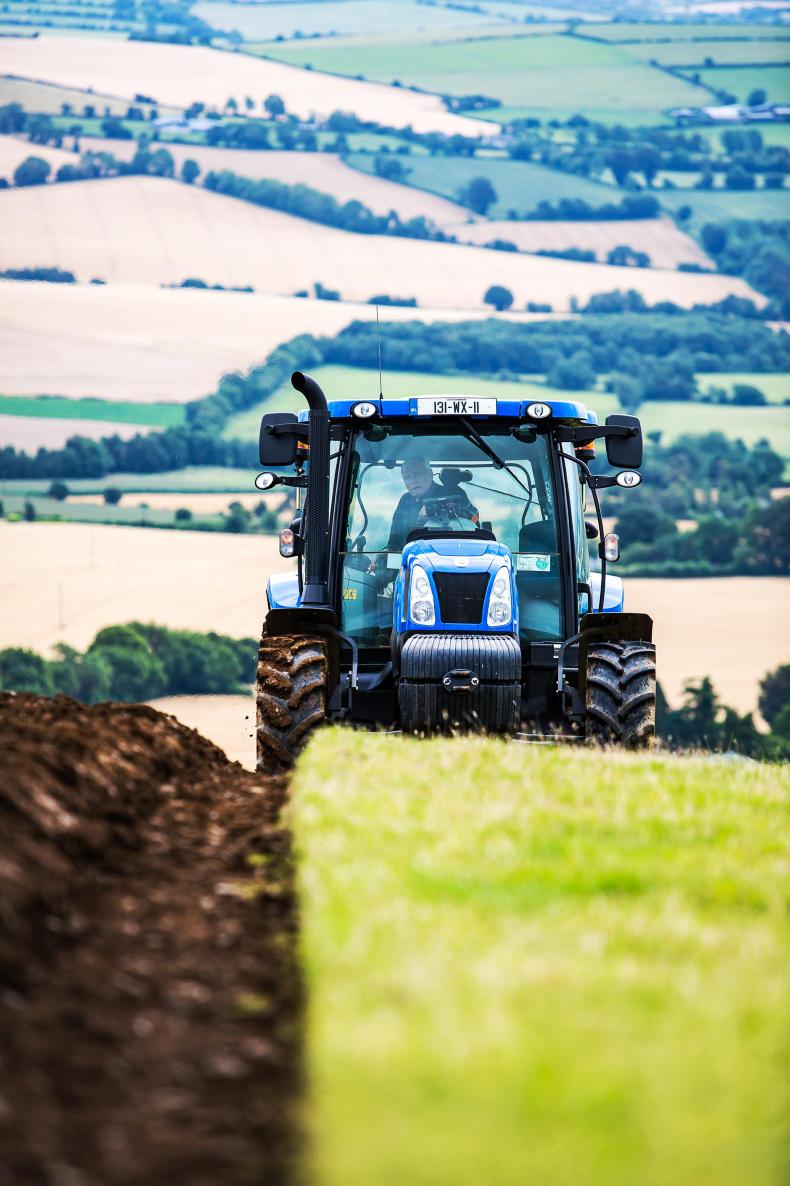
\ Philip Doyle
Galway farmer: Where is the market for 25% organic? Ireland only has 2.6% of its farmland under organic production, is it feasible to reach 25% by 2030, or will a success be 25% across the EU?
The 25% is an EU-level target. It is ambitious and commensurate to our sustainability challenge. Currently the organic area in the EU27 is at 8% of agricultural land. Member states will be asked to set organic targets and these should take into account the efforts made over the years, the starting point and the potential for improvement, thus acknowledging in this desired collective effort, the specific situation of each member state.
Future of commercial farming
ICMSA president Pat McCormack: Can Mr Burtscher outline the European Commission’s vision of commercial farming post 2020 and does the vision include a realistic level of food price inflation?
The vision underlying the CAP proposals and the Green Deal strategies is neither sector nor farm-type specific, but encompasses agriculture as a whole. It sets out the direction of travel to ensure that our food system, including agriculture, is so sustainable and resilient that it can provide food and environmental services and goods and contribute to vital rural areas, also for the next generations. In order to deliver on this vision, the CAP continues to provide a common policy framework at EU level which is fit for purpose, provided that key elements of the 2018 Commission proposals are kept by the European Parliament and the Council of Ministers in the ongoing reform process.
At the same time, the CAP provides the flexibility for member states to come up with interventions based on their local conditions. This will allow member states to better support farmers, in a more targeted way, and set the transition towards sustainable food systems in motion.
This is an opportunity for farmers to sell products with higher added-value and reinforce the connection with consumers
The transition will offer opportunities, notably in terms of digitalisation, circular economy and bio-economy, apt to create environmental and economic benefits at the same time.
Moreover, citizens’ expectations are evolving and driving significant change in the food market, with a growing demand for sustainable products (eg organic, quality, locally produced etc). This is an opportunity for farmers to sell products with higher added-value and reinforce the connection with consumers.
Over the years, the European food producers have demonstrated that they are capable of combining quality with affordability. Average share of household income spent on food in the EU has declined over the years to just over 12% in 2018. While there are significant differences between member states and segments of the population, this is very low. Increased costs for sustainability at farm level need to translate into higher farmgate prices to ensure a fair return for farmers. However, higher farmgate prices do not necessarily lead to a comparable increase at consumer level. The share of the value of the raw material in the final product is often low. Moreover, some environmental and climate-related requirements, necessary to ensure sustainability, are, and will, be compensated by CAP payments.
Food production impact from Farm to Fork and Biodiversity targets
Kevin Maher, environmental sustainability executive, Food Drink Ireland, Ibec: Who is going to be responsible for carrying out the impact assessments and what kind of time frame are we looking at before the first assessment is complete? If we meet the targets set out in the Farm to Fork and Biodiversity strategies - will there not be a reduction in food production in the EU due to lower yields?
The Commission will carry out impact assessments for legislative initiatives that are part of the Green Deal. These impact assessments will cover the effects, consequences and opportunities that will arise from those targets. Moreover, the Commission will continuously monitor the impact of these strategies on food security and competitiveness.
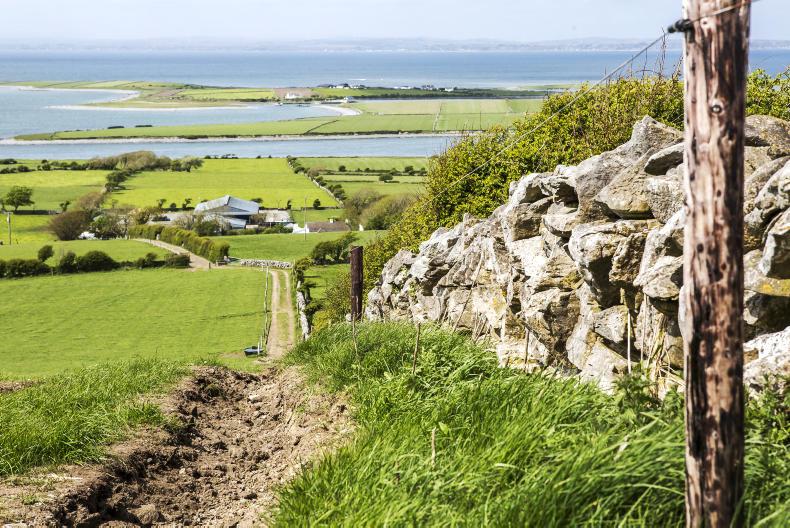
\ Philip Doyle
Tony Barry, farmer: Are there any talks of a retirement scheme as I believe young farmers are having a big issue getting into the farming due to older farmers not wanting to retire, ie access to farmland is a big problem for young people?
In the Commission’s proposals for the future CAP, attracting young farmers and facilitating business development in rural areas is one of the nine common objectives of the CAP post-2020.
In this framework, member states will have the possibility to support forms of cooperation among farmers that could include farm partnerships between older and younger generations of farmers. These partnerships may include actions such as retirement planning and lump sum payments for farmers in the retirement age who permanently transfer their holding.
Agri emissions and food production
Thomas Duffy, Macra president: What specific measures will the Commission take to reduce agricultural emissions while protecting rather than cutting EU agricultural production? In particular Ireland’s low-intensity beef and dairy?
The European Green Deal has established the objective of reaching climate neutrality by 2050, and agriculture, like all other sectors, will have to contribute to it. Moreover, agriculture, together with forestry, can play a key role towards this objective thanks to their capacity to sequester carbon from the atmosphere and store it in soil and biomass.
Concerning greenhouse gas (GHG) emissions from agriculture, there are a number of technologies and agricultural practices that can contribute to reducing emissions, such as precision farming and feeding, appropriate manure management, the deployment of anaerobic digesters, breeding programmes, better health and efficiency of herds.
Some of these practices can reduce emissions while improving the economic return and resilience of farms.
The new green architecture also provides better opportunities to combine interventions to promote the adoption of sustainable farming practices
The future CAP post-2020 will continue to provide support to adopt these practices and reduce emissions, while at the same time enhancing competitiveness. The new way of working (new delivery model) will provide member states with flexibility in designing interventions that most adequately fit their local situations and needs, and that can better contribute to the national climate strategies and targets. The new green architecture also provides better opportunities to combine interventions to promote the adoption of sustainable farming practices.
With their national CAP strategic plans, member states will have a tool at hand to develop a coherent forward-looking strategy for “climate and agriculture”, both on adaptation and mitigation.
Innovation, technology, research and advice, which are crucial for further improvement in efficiency together with sustainability, are also at the core of the proposal for the future CAP post-2020. This will be made possible with the new agricultural knowledge and innovation systems (AKIS), more emphasis in the digitalisation of the farm sector, an enhanced Farm Advisory Service, and the additional financial envelope for Horizon Europe.
Kevin Roche: Could the director-general please comment on the role that peatlands can play in sequestering carbon as part of the EU Green Deal. Does he envisage that farmers will be compensated for carbon sequestration in functioning bogs/peatlands and over what duration?
Even if peatlands represent a relatively small share of EU land and farmland, the protection of their carbon stock is extremely important to help reach EU climate reduction targets.
According to land use, land use change and forestry (LULUCF) reporting for the year 2017, in the EU croplands on high-carbon-stock soil are responsible for 31.5 MtCO2 per year of emissions (33% of organic soil emissions), and grassland for 40.3 MtCO2 per year (42%).
The CAP indeed can reward carbon sequestration and protection by farmers
The new CAP proposed by the Commission pays a higher attention to protection of carbon-rich soils. In its enhanced conditionality (which links income support and other area- and animal-based payments to environment- and climate-friendly farming practices and rules), the preservation of carbon-rich soils such as peatlands and wetlands is included. It will allow member states to create specific supporting schemes for restoration of peatlands.
The CAP indeed can reward carbon sequestration and protection by farmers. For example, member states can define schemes in their CAP strategic plans and reward farmers for the carbon sequestered or stored.
The building blocks of the Green Deal will encourage schemes for rewarding farmers and foresters for protecting carbon stock of soil. For instance, the Circular Economy Action Plan, recently adopted, foresees that the Commission will develop a regulatory framework for certifying carbon removals, based on robust and transparent carbon accounting, to monitor and verify the authenticity of carbon removals. A specific action on EU carbon farming initiative has been included in the Farm to Fork strategy, planned for 2021, and pilot projects are carried out to find the best solutions and provide guidelines and elements for building effective carbon-rewarding schemes in future. The Climate Pact initiative, under the European Green Deal, will allow the promotion of these types of schemes.
Karol Kissane, dairy farmer, Co Kerry: With the Farm to Fork and EU Green Deal planning a 50% reduction in pesticides; 20% in fertilisers; 50% reduction in antibiotics and 25% of agricultural land to be used for organic farming, will the EU be ensuring any agriculture produce imported from outside the EU will have to adhere to these standards too in any new trade deals? Or is it just a case of the EU exporting its real environmental footprint to countries such as Brazil?
Unnamed farmer: How do we talk about sustainable production and still have a trade agreement with Brazil (Mercosur)?
The implementation of the Farm to Fork strategy on the global marketplace will require the EU to engage proactively with all our trading partners and make better use of existing and future trade agreements to strengthen food sustainability.
The EU will need to ensure that every new trade agreement includes a dedicated chapter on sustainable development integrating food systems. As the world’s largest single market, the EU can set standards that apply across global value chains.
Many bilateral agreements already include chapters on trade and sustainable development and on trade and the environment
The Commission will continue to work on new standards for sustainable growth and use its economic weight to shape international standards that are in line with EU environmental and climate ambitions. Furthermore, the EU’s bilateral trade agreements offer a means to foster environmental standards, in addition to food safety standards. Many bilateral agreements already include chapters on trade and sustainable development and on trade and the environment. Some contain provisions in areas such as animal welfare or use of antimicrobials.
Finally, the establishment of a general policy framework for sustainable food systems, combined with labelling or other incentives, could contribute to gradually raising sustainability standards for all products placed on the EU market.
Pesticide reduction and use of GM technology
Bill O’Keeffe, dairy farmer, Kilkenny: If we have to reduce pesticides, can we have access to GM technology?
The European Union’s legal framework on GMOs ensures that all use of GMO takes place in safe conditions. Currently, more than 70 GMOs are authorised in the EU.*
It is recognised that new innovative techniques, including biotechnology and the development of bio-based products, may play a role in increasing sustainability, provided they are safe for consumers and the environment while bringing benefits for society as a whole. It is also recognised that they can also accelerate the process of reducing dependency on pesticides.
The Commission is carrying out a study in response to the request of member states, which will look at the potential of new genomic techniques to improve sustainability along the food supply chain.
*almost exclusively for use as food and feed.
Farmers asked dozens of questions during the Irish Farmers Journal / European Commission Representation in Ireland webinar with Wolfgang Burtscher, Director-General of the Directorate-General Agriculture and Rural Development in the European Commission. Following the webinar, he provided extra detail on other questions that farmers were keen to put to him.

Irish Farmers Journal editor Justin McCarthy and Director-General of the European Commission's Directorate-General Agriculture and Rural Development Wolfgang Burtscher.
IFA president Tim Cullinan: How does the EU expect to be able to implement the Farm to Fork or Biodiversity strategies without a substantial increase in the CAP budget?
The CAP will continue to be the key policy tool to support farming. Adequate financial support for the CAP and the agricultural sector is essential in the context of achieving the green ambition so that farmers can realistically lead us on the path of sustainable agricultural production. The Commission has presented on 27 May a revised Multiannual Financial Framework (MFF) of €1,100bn and a recovery package of €750bn.
The COVID-related crisis has hit us hard both from a human perspective and from an economic perspective
The new EU budget proposal foresees both a reinforced MFF for period 2021-2027 for the CAP, as well as additional funding for rural development under the new European Recovery Instrument. Thus in total, €391bn (in current prices) is proposed for agriculture and rural development, commensurate to the importance of agriculture and rural development in the EU: it adds €26.4bn to the Commission’s 2018 proposal.
This is a significant move that will help us to achieve the Green Deal targets in agriculture.
The COVID-related crisis has hit us hard both from a human perspective and from an economic perspective. With the peak of the pandemic winding down, it is now time to start the economic recovery, which must help all citizens, also those in rural areas.
We should not go back to where we were before this crisis, but use the recovery to tackle important challenges. We need to support the transition to a sustainable future, with not only economic but also ecological sustainability.
We have to focus on the next generation of citizens and farmers, which calls for sustainable development and for a green, digital and resilient future.

\ Philip Doyle
Galway farmer: Where is the market for 25% organic? Ireland only has 2.6% of its farmland under organic production, is it feasible to reach 25% by 2030, or will a success be 25% across the EU?
The 25% is an EU-level target. It is ambitious and commensurate to our sustainability challenge. Currently the organic area in the EU27 is at 8% of agricultural land. Member states will be asked to set organic targets and these should take into account the efforts made over the years, the starting point and the potential for improvement, thus acknowledging in this desired collective effort, the specific situation of each member state.
Future of commercial farming
ICMSA president Pat McCormack: Can Mr Burtscher outline the European Commission’s vision of commercial farming post 2020 and does the vision include a realistic level of food price inflation?
The vision underlying the CAP proposals and the Green Deal strategies is neither sector nor farm-type specific, but encompasses agriculture as a whole. It sets out the direction of travel to ensure that our food system, including agriculture, is so sustainable and resilient that it can provide food and environmental services and goods and contribute to vital rural areas, also for the next generations. In order to deliver on this vision, the CAP continues to provide a common policy framework at EU level which is fit for purpose, provided that key elements of the 2018 Commission proposals are kept by the European Parliament and the Council of Ministers in the ongoing reform process.
At the same time, the CAP provides the flexibility for member states to come up with interventions based on their local conditions. This will allow member states to better support farmers, in a more targeted way, and set the transition towards sustainable food systems in motion.
This is an opportunity for farmers to sell products with higher added-value and reinforce the connection with consumers
The transition will offer opportunities, notably in terms of digitalisation, circular economy and bio-economy, apt to create environmental and economic benefits at the same time.
Moreover, citizens’ expectations are evolving and driving significant change in the food market, with a growing demand for sustainable products (eg organic, quality, locally produced etc). This is an opportunity for farmers to sell products with higher added-value and reinforce the connection with consumers.
Over the years, the European food producers have demonstrated that they are capable of combining quality with affordability. Average share of household income spent on food in the EU has declined over the years to just over 12% in 2018. While there are significant differences between member states and segments of the population, this is very low. Increased costs for sustainability at farm level need to translate into higher farmgate prices to ensure a fair return for farmers. However, higher farmgate prices do not necessarily lead to a comparable increase at consumer level. The share of the value of the raw material in the final product is often low. Moreover, some environmental and climate-related requirements, necessary to ensure sustainability, are, and will, be compensated by CAP payments.
Food production impact from Farm to Fork and Biodiversity targets
Kevin Maher, environmental sustainability executive, Food Drink Ireland, Ibec: Who is going to be responsible for carrying out the impact assessments and what kind of time frame are we looking at before the first assessment is complete? If we meet the targets set out in the Farm to Fork and Biodiversity strategies - will there not be a reduction in food production in the EU due to lower yields?
The Commission will carry out impact assessments for legislative initiatives that are part of the Green Deal. These impact assessments will cover the effects, consequences and opportunities that will arise from those targets. Moreover, the Commission will continuously monitor the impact of these strategies on food security and competitiveness.

\ Philip Doyle
Tony Barry, farmer: Are there any talks of a retirement scheme as I believe young farmers are having a big issue getting into the farming due to older farmers not wanting to retire, ie access to farmland is a big problem for young people?
In the Commission’s proposals for the future CAP, attracting young farmers and facilitating business development in rural areas is one of the nine common objectives of the CAP post-2020.
In this framework, member states will have the possibility to support forms of cooperation among farmers that could include farm partnerships between older and younger generations of farmers. These partnerships may include actions such as retirement planning and lump sum payments for farmers in the retirement age who permanently transfer their holding.
Agri emissions and food production
Thomas Duffy, Macra president: What specific measures will the Commission take to reduce agricultural emissions while protecting rather than cutting EU agricultural production? In particular Ireland’s low-intensity beef and dairy?
The European Green Deal has established the objective of reaching climate neutrality by 2050, and agriculture, like all other sectors, will have to contribute to it. Moreover, agriculture, together with forestry, can play a key role towards this objective thanks to their capacity to sequester carbon from the atmosphere and store it in soil and biomass.
Concerning greenhouse gas (GHG) emissions from agriculture, there are a number of technologies and agricultural practices that can contribute to reducing emissions, such as precision farming and feeding, appropriate manure management, the deployment of anaerobic digesters, breeding programmes, better health and efficiency of herds.
Some of these practices can reduce emissions while improving the economic return and resilience of farms.
The new green architecture also provides better opportunities to combine interventions to promote the adoption of sustainable farming practices
The future CAP post-2020 will continue to provide support to adopt these practices and reduce emissions, while at the same time enhancing competitiveness. The new way of working (new delivery model) will provide member states with flexibility in designing interventions that most adequately fit their local situations and needs, and that can better contribute to the national climate strategies and targets. The new green architecture also provides better opportunities to combine interventions to promote the adoption of sustainable farming practices.
With their national CAP strategic plans, member states will have a tool at hand to develop a coherent forward-looking strategy for “climate and agriculture”, both on adaptation and mitigation.
Innovation, technology, research and advice, which are crucial for further improvement in efficiency together with sustainability, are also at the core of the proposal for the future CAP post-2020. This will be made possible with the new agricultural knowledge and innovation systems (AKIS), more emphasis in the digitalisation of the farm sector, an enhanced Farm Advisory Service, and the additional financial envelope for Horizon Europe.
Kevin Roche: Could the director-general please comment on the role that peatlands can play in sequestering carbon as part of the EU Green Deal. Does he envisage that farmers will be compensated for carbon sequestration in functioning bogs/peatlands and over what duration?
Even if peatlands represent a relatively small share of EU land and farmland, the protection of their carbon stock is extremely important to help reach EU climate reduction targets.
According to land use, land use change and forestry (LULUCF) reporting for the year 2017, in the EU croplands on high-carbon-stock soil are responsible for 31.5 MtCO2 per year of emissions (33% of organic soil emissions), and grassland for 40.3 MtCO2 per year (42%).
The CAP indeed can reward carbon sequestration and protection by farmers
The new CAP proposed by the Commission pays a higher attention to protection of carbon-rich soils. In its enhanced conditionality (which links income support and other area- and animal-based payments to environment- and climate-friendly farming practices and rules), the preservation of carbon-rich soils such as peatlands and wetlands is included. It will allow member states to create specific supporting schemes for restoration of peatlands.
The CAP indeed can reward carbon sequestration and protection by farmers. For example, member states can define schemes in their CAP strategic plans and reward farmers for the carbon sequestered or stored.
The building blocks of the Green Deal will encourage schemes for rewarding farmers and foresters for protecting carbon stock of soil. For instance, the Circular Economy Action Plan, recently adopted, foresees that the Commission will develop a regulatory framework for certifying carbon removals, based on robust and transparent carbon accounting, to monitor and verify the authenticity of carbon removals. A specific action on EU carbon farming initiative has been included in the Farm to Fork strategy, planned for 2021, and pilot projects are carried out to find the best solutions and provide guidelines and elements for building effective carbon-rewarding schemes in future. The Climate Pact initiative, under the European Green Deal, will allow the promotion of these types of schemes.
Karol Kissane, dairy farmer, Co Kerry: With the Farm to Fork and EU Green Deal planning a 50% reduction in pesticides; 20% in fertilisers; 50% reduction in antibiotics and 25% of agricultural land to be used for organic farming, will the EU be ensuring any agriculture produce imported from outside the EU will have to adhere to these standards too in any new trade deals? Or is it just a case of the EU exporting its real environmental footprint to countries such as Brazil?
Unnamed farmer: How do we talk about sustainable production and still have a trade agreement with Brazil (Mercosur)?
The implementation of the Farm to Fork strategy on the global marketplace will require the EU to engage proactively with all our trading partners and make better use of existing and future trade agreements to strengthen food sustainability.
The EU will need to ensure that every new trade agreement includes a dedicated chapter on sustainable development integrating food systems. As the world’s largest single market, the EU can set standards that apply across global value chains.
Many bilateral agreements already include chapters on trade and sustainable development and on trade and the environment
The Commission will continue to work on new standards for sustainable growth and use its economic weight to shape international standards that are in line with EU environmental and climate ambitions. Furthermore, the EU’s bilateral trade agreements offer a means to foster environmental standards, in addition to food safety standards. Many bilateral agreements already include chapters on trade and sustainable development and on trade and the environment. Some contain provisions in areas such as animal welfare or use of antimicrobials.
Finally, the establishment of a general policy framework for sustainable food systems, combined with labelling or other incentives, could contribute to gradually raising sustainability standards for all products placed on the EU market.
Pesticide reduction and use of GM technology
Bill O’Keeffe, dairy farmer, Kilkenny: If we have to reduce pesticides, can we have access to GM technology?
The European Union’s legal framework on GMOs ensures that all use of GMO takes place in safe conditions. Currently, more than 70 GMOs are authorised in the EU.*
It is recognised that new innovative techniques, including biotechnology and the development of bio-based products, may play a role in increasing sustainability, provided they are safe for consumers and the environment while bringing benefits for society as a whole. It is also recognised that they can also accelerate the process of reducing dependency on pesticides.
The Commission is carrying out a study in response to the request of member states, which will look at the potential of new genomic techniques to improve sustainability along the food supply chain.
*almost exclusively for use as food and feed.







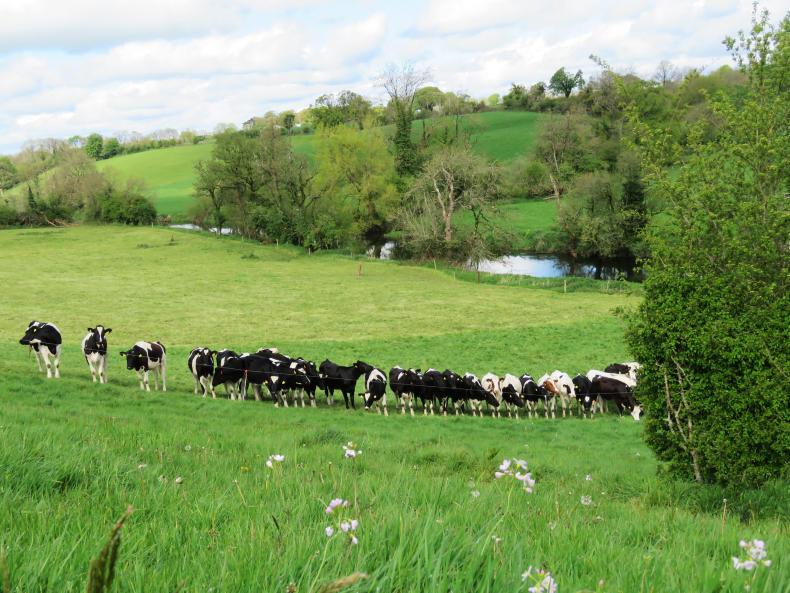
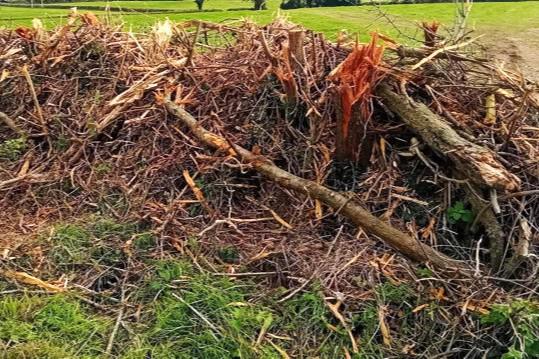
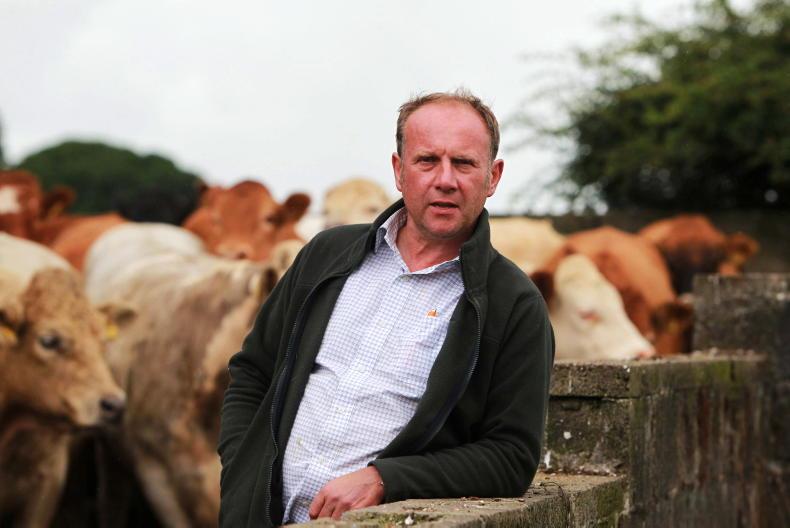

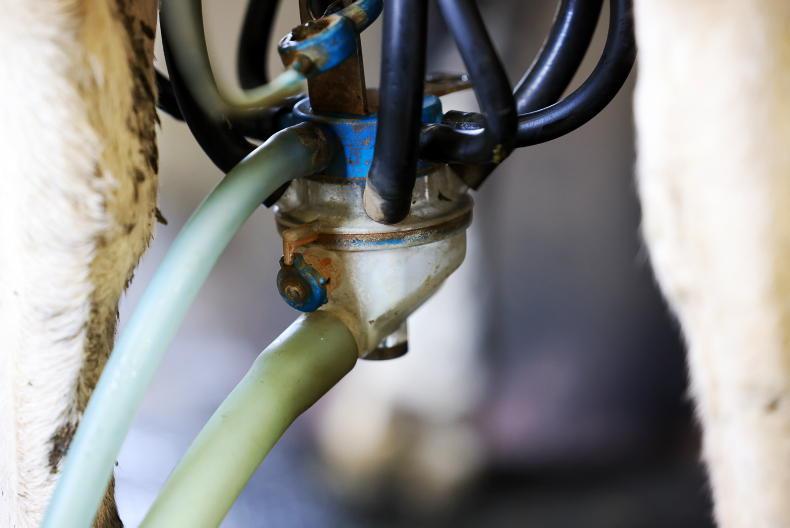
SHARING OPTIONS